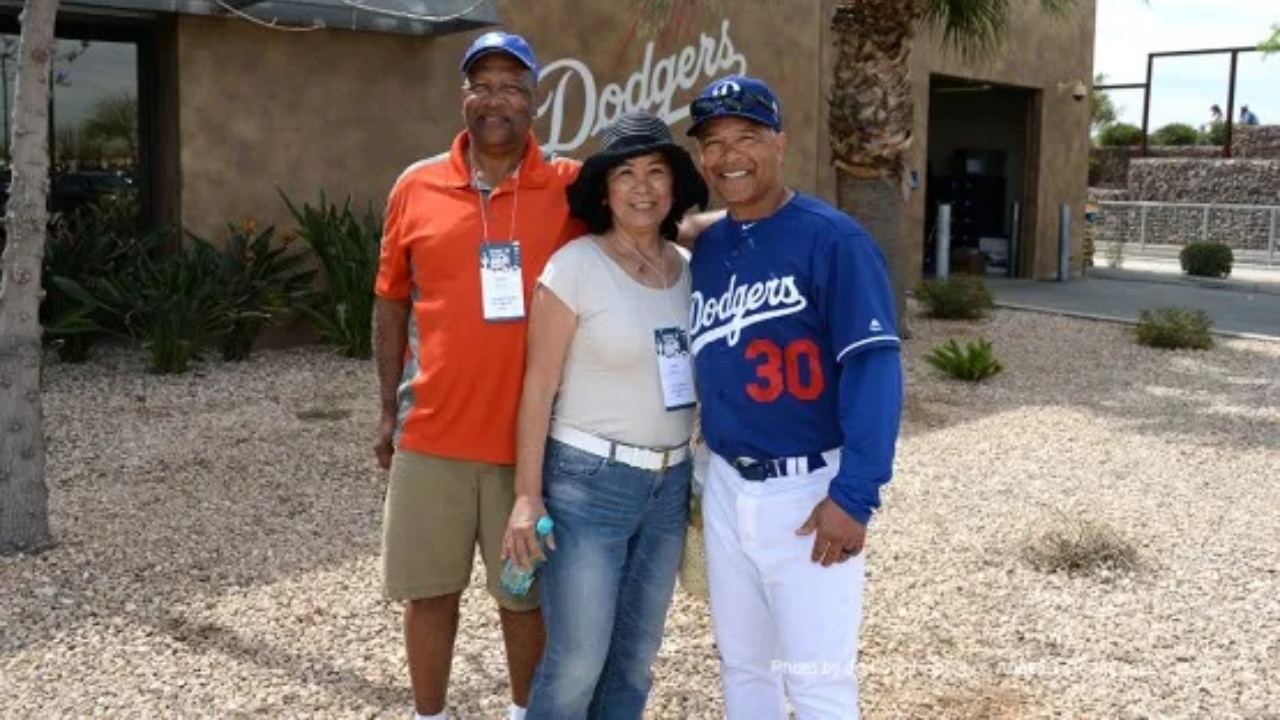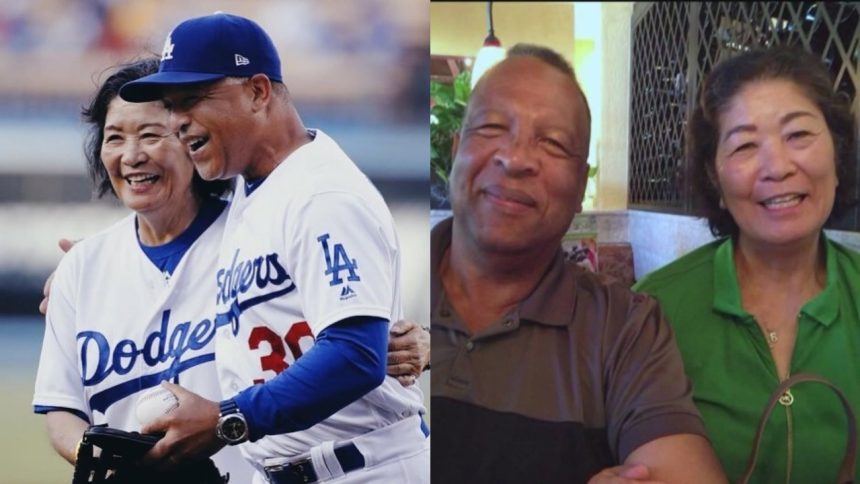When you see Dave Roberts in the dugout, his smile is as much a part of the Los Angeles Dodgers’ identity as their blue uniforms. That positivity, a hallmark of his managerial style, is a direct gift from his mother and the Japanese side of his heritage. Roberts’ story is a profoundly American one, woven with threads from across the Pacific, born from the love between a U.S. Marine and an Okinawan woman.
His journey from a child grappling with his identity to a history-making World Series manager is a powerful narrative about embracing one’s roots. While he’s become a celebrity in the world of baseball, the foundation of his life was built by his parents, Waymon and Eiko Roberts, whose own story began in post-war Japan.
Dave Roberts’ background has become a source of strength and connection, especially as he manages a team with global superstars like Shohei Ohtani. He has evolved into a role he once didn’t fully anticipate: a groundbreaking figure and a spokesman for inclusivity. As he once reflected, speaking out against issues like Asian hate is vital because “that could be my mom.” His family’s legacy and his own biracial identity have equipped him with a unique perspective, allowing him to bridge cultures and connect with players and fans on a deeper level. This personal history adds rich layers to the manager known for his strategic steals, both on and off the field.
You Might Like: Love Island USA: Huda Mustafa’s Controversy, Explained
The Foundation: Family and a Global Upbringing
Dave Roberts was born David Ray Roberts on May 31, 1972, in Naha, Okinawa, Japan. His father, Waymon Roberts, was an African American Marine from Texas who was stationed in Okinawa. There, he met Eiko Ikehara, a native Okinawan woman. Despite a significant language barrier—Waymon spoke no English and Eiko little English—their connection was immediate and powerful, famously fostered with the help of an English-to-Japanese dictionary.
Roberts has often said that “the language of love resonated with both of them.” This union formed the core of his household, but his time in Japan was brief; when he was just six months old, the family moved to the United States due to his father’s military service, with Eiko leaving her entire home behind.

Growing up as the son of a Marine meant a life of constant moving from one base to another, including stints in California, North Carolina, and Hawaii, before the family finally settled in San Diego. In every new school and new neighborhood, Roberts was frequently met with the confusing question, “What are you?” He has openly admitted that this led to a period of identity crisis during his youth, feeling caught between his Black and Japanese heritage and struggling to find where he fit in. His mother, Eiko, worked hard to keep their Japanese culture alive at home through traditional Japanese meals and décor, and by instilling a characteristically positive outlook on life.
Roberts credits this upbringing for his own relentless positivity, calling it “a Japanese cultural thing.” His father, Waymon, who retired as a Master Gunnery Sergeant, provided a different kind of guidance. The family didn’t focus on race or racism; as Waymon said after his son was named Dodgers manager, “We are who we are.” Waymon Roberts passed away in March 2017 at the age of 68.
Roberts has one sibling, a younger sister named Melissa Roberts Parker. Like Dave, she grew up moving between military bases. She is now married and a mother of several children, including two notable collegiate softball players. As for his own family, Roberts is married to his high school sweetheart, Tricia Lynn Schempp, whom he met at Vista High School in San Diego. The couple married in 1997 and has two children: a son named Cole, who is pursuing his own career in professional baseball, and a daughter named Emmerson (often called Emme).
Embracing Ethnicity and Looking Forward
For much of his life, Dave Roberts felt he hadn’t given his Japanese side its “due,” something he has come to regard as regret. He never learned to speak the language, a fact that became a point of connection when the Dodgers signed pitcher Yoshinobu Yamamoto. Roberts good-naturedly challenged the Japanese star to a language exchange, saying, “He’s going to challenge me on my Japanese, I’m going to challenge him on his English, and we’re going to try to find a way to meet somewhere in the middle.” This highlights his ongoing journey to connect with his heritage.
In recent years, a profound shift has occurred. The Dodgers’ acquisitions of Japanese players have immersed Roberts in the culture in a new way, making him a baseball celebrity in Japan and giving him a platform to explore his roots more deeply. This reconnection culminated in a heartfelt trip to his birthplace of Naha, Okinawa, after the Dodgers’ 2024 World Series win. There, he was given a Special Honor Award by the city.
Standing before the mayor and thousands of residents, Dave Roberts declared, “The final piece for me was to come to Naha to be with my people.” It was a full-circle moment for the manager, the son of Okinawa, who now proudly carries his heritage with him for the world to see.



